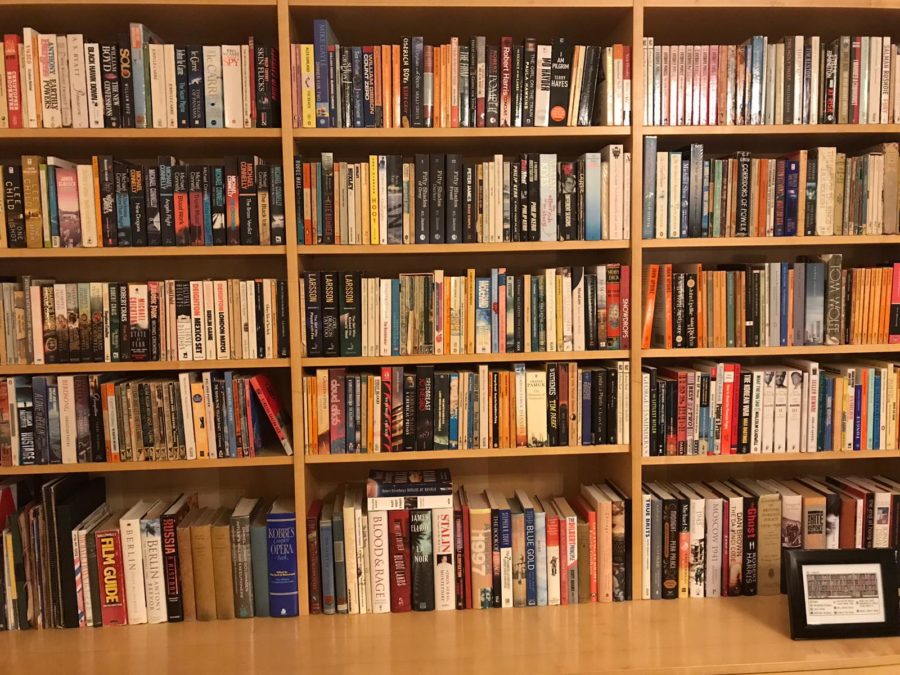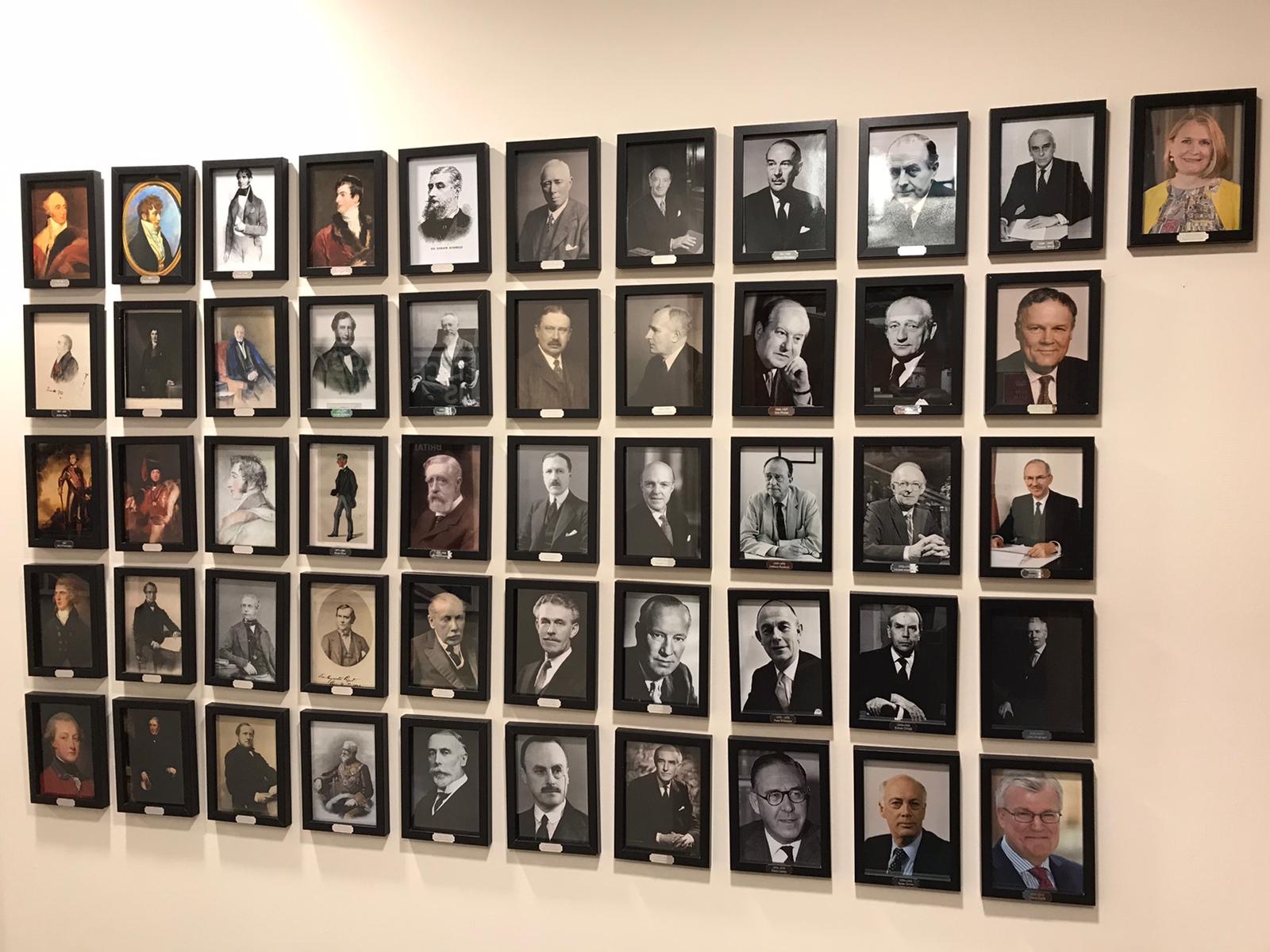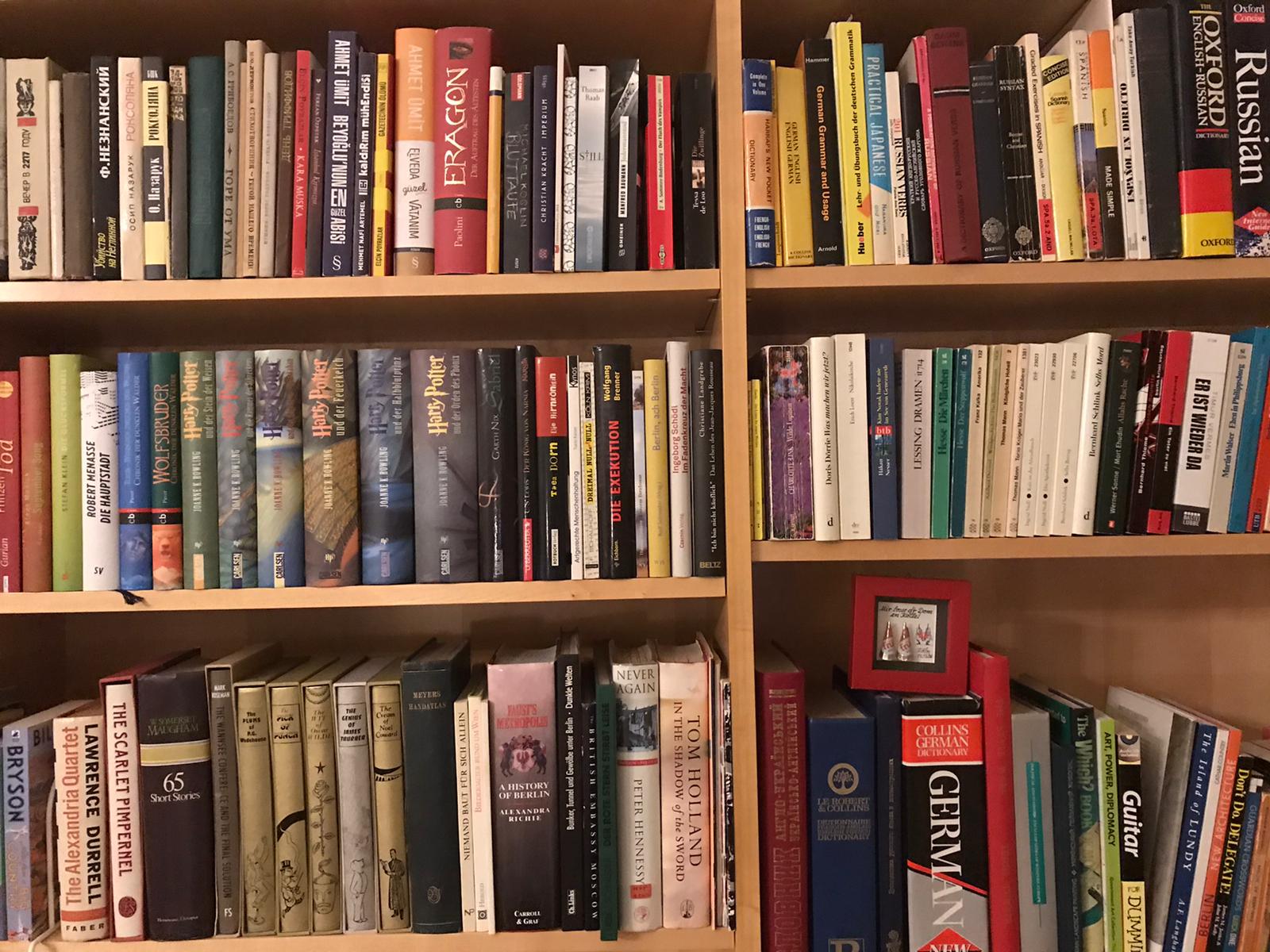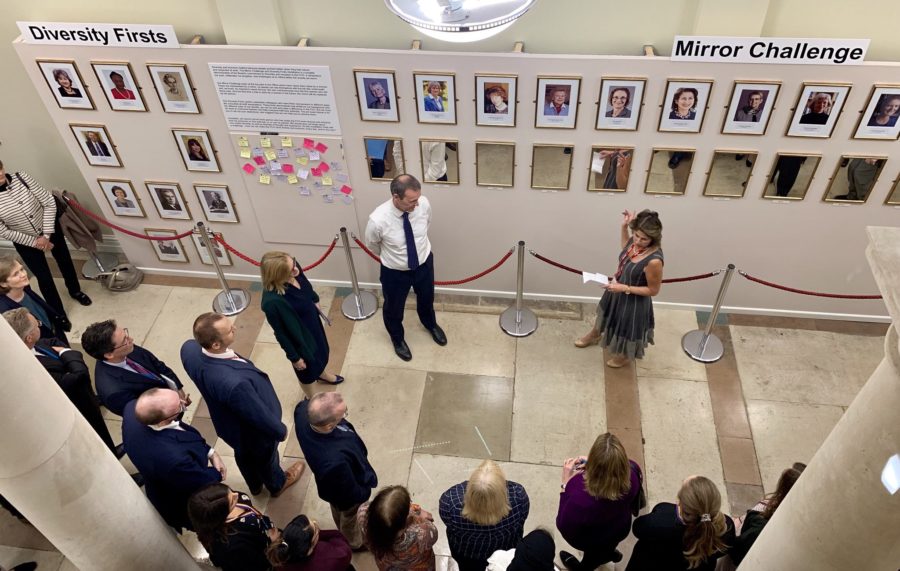5th March 2020 Vienna, Austria
Authors you should read more
I’m looking at my bookshelf at home when I notice a weird similarity to the rogues’ gallery of former British ambassadors to Austria in the embassy.
My bookshelf is dominated by male authors.

The rogues’ gallery for Vienna is exclusively male, up until my excellent predecessor, Susan le Jeune d’Allegeershecque (in Vienna 2012-16).

Male domination of both literature and diplomacy belongs in the past. Despite their relative rarity on my bookshelves, I enjoy many women authors: a quick scout turned up Jane Austen (“Pride and Prejudice” – a fantastically elegant, and funny, book); Charlotte Bronte (“Jane Eyre”); AS Byatt (“Possession”); Jung Chang (“Wild Swans”); Jackie Collins (“Hollywood Wives” – my tastes are eclectic); George Eliot (“Middlemarch” – one of the great English novels and astonishingly modern in its depiction of gender politics and challenges); Helen Fielding (“Bridget Jones’s Diary”); Sue Grafton (her “Alphabet series”, featuring private investigator Kinsey Millhone, which tragically got only as far as “Y” before Grafton’s death in 2017); Mo Hayder (who I have met, and whose “The Treatment” tops my “most shocking book I have ever read” category); EL James (all three volumes); Doris Lessing (including the seminal “The Golden Notebook”; “The Good Terrorist”; and the scary “The Fifth Child”); Lionel Shriver (“We need to talk about Kevin”, another bloodcurdling tale); Elif Shafak (a fine Turkish writer who I was lucky enough to get to know in Istanbul, now based in London and writing in English); Faye Weldon (“Puffball”); and Jeannette Winterson (who I met in Vienna, and whose “Oranges Are Not the Only Fruit” made a huge impression on me).
Another part of my bookshelf houses German-language novels, including several by Ingrid Noll (eg “Die Apothekerin”); Thea Dorn (“Die Hirnkönigin” – almost in the Mo Hayder class of gruesome killings); Charlotte Link (“Wilde Lupinen”) and Doris Dörrie (“Was machen wir jetzt?”). I have also recently met Austrian authors Doris Knecht and Marlene Streeruwitz, although to my shame I have not read anything by either of them yet. I can also recommend the one book I have ever managed to read in Turkish, “Gazetecinin Ölümü” (death of a journalist) by Elçin Poyrazlar.

Contemporary publishing is, arguably, a good deal more gender-neutral than in the past. But I would encourage anyone who hasn’t discovered the above authors to sample them. If I didn’t enjoy them, they wouldn’t still be on my bookshelf. Take a look – nip round to your bookshop, or go online, today.
As for diplomacy, the British Foreign Office has taken huge steps in recent years to increase gender equality in the workplace. According to the Foreign office annual report 2019 almost a third of British Ambassadors and Heads of Missions around the world are women (49 out of 163). To encourage progress, a “Diversity Wall” in the Foreign Office includes a “Mirror Challenge” showing the top 28 jobs in the organisation, with photos showing the first woman to do each of the jobs, and mirrors showing those jobs not yet filled by a woman. The number of mirrors is steadily shrinking.

Finally, if anyone wants more inspiration on what women are capable of, I recommend the film “Maiden”, which we showed this week with UN Vienna, about the phenomenal Tracy Edwards and how she assembled an all-women crew for the Whitbread Round the World Race in 1989. I will blog about it shortly. Pure, moving inspiration.
Surprised by ‘dominated by male authors’. You talk about both detective novels and the 19th century and here my shelves are very woman-heavy; add to your list the other Brontes, Mrs Gaskell, Sayers, Allingham, McDiarmid, etc. Contemporary fiction? Enjoying Sally Rooney and Sarah Moss a lot; no men right now. Contemporary Czech history, for that matter – Mary Heimann’s great recent achievement. This is one area where I actually don’t worry about gender…
Thanks for your comment Vefa.
Dear Leigh,
Thank you for sharing, these are great recommendations. I certainly learned a lot from this article and should get to reading more female authors as well.
Warm regards,
Vefa